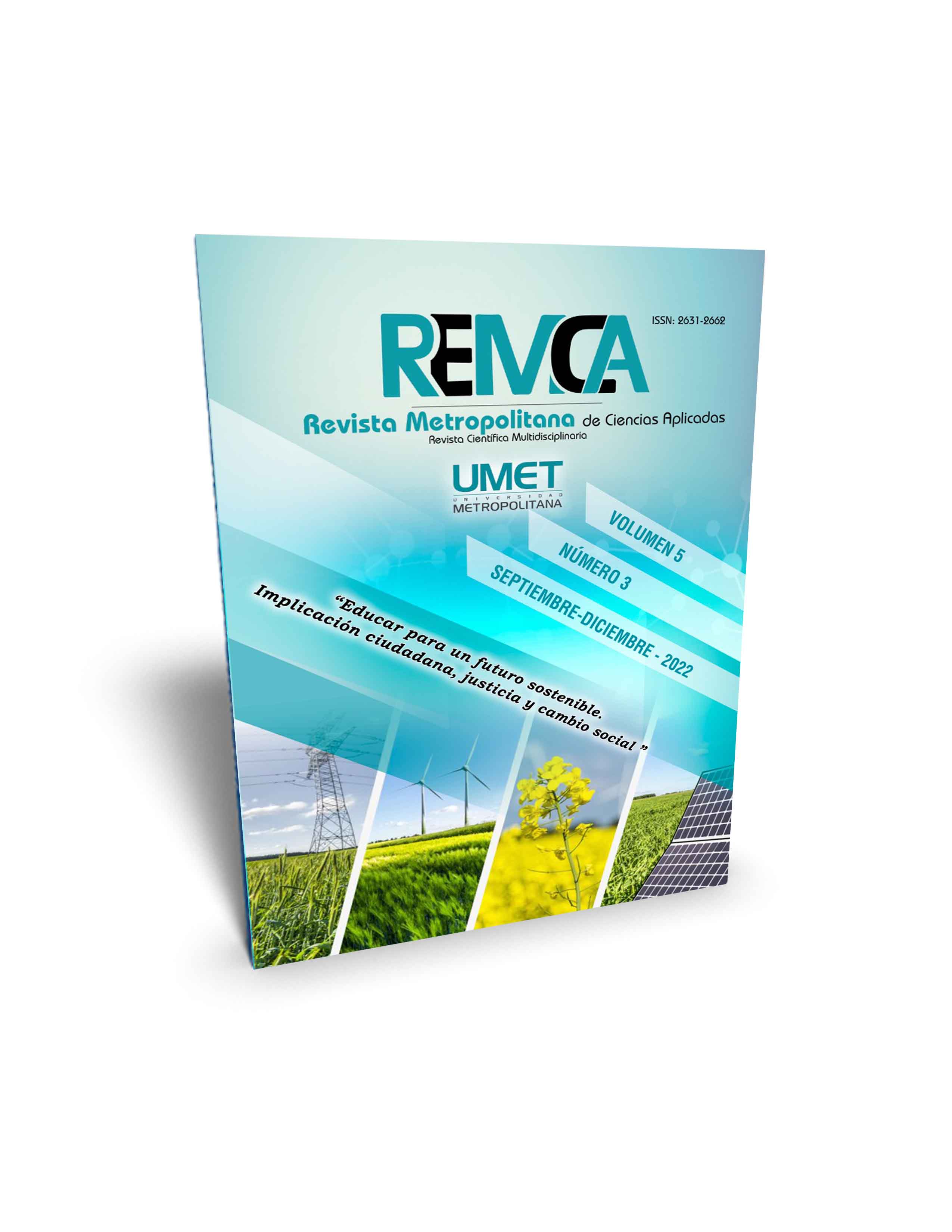Socio-environmental impact of the circular economy in the city of Machala, El Oro province
DOI:
https://doi.org/10.62452/ca4rwa02Keywords:
Circular economy, solid waste, recyclingAbstract
The circular economy is an economic model based on the reduction, reuse and recycling of solid waste, that is, a model in which social and environmental benefit is prioritized, interrelating very closely with sustainability. In the city of Machala, projects are carried out that allow citizens to learn more about the management of solid waste generated by themselves, giving a new use to those wastes that ended their life cycle, for example: glass, plastics, metals, cardboard, papers, etc., in this way, it was found that the impact that the circular economy has on the city and its inhabitants is positive, The results of the surveys applied citizens have knowledge about urban solid waste, they have reused their waste and the cleaning company of the Municipality of Machala has contributed to people knowing about these with their talks, a project called reciclatón which includes the 3R (reduce, reuse and recycle), The objective of the study was to determine the socio-environmental impact of the circular economy in the city of Machala.
Downloads
References
Almeida-Guzmán, M., & Díaz-Guevara, C. (2020). Economía circular, una estrategia para el desarrollo sostenible. Avances en Ecuador. Estudios de la Gestión: Revista Internacional de Administración, (8), 34–56.
Arroyo Morocho, F. R. (2018). La economía circular como factor de desarrollo sustentable del sector productivo. INNOVA Research Journal, 3(12), 78-98.
Carvajal Romero, H., García Álvarez, M. T., & Teijeiro Álvarez, M. (2021). Evolución de la política medioambiental en la gestión de residuos. Universidad y Sociedad, 13(2), 265-275.
Cerda, E., & Khalilova, A. (2016). Economía Circular. Estrategia y competitividad empresarial. Revista de economía industrial, 401.
Corte Cruz, P. S. (2016). Recursos naturales en la economía: ¿es posible el crecimiento verde? Revista Arbitrada Formación Gerencial, 15(1).
Garabiza, B., Prudente, E., & Quinde, K. (2021). La aplicación del modelo de economía circular en Ecuador: Estudio de caso. Revista Espacios, 42(02), 222-237.
González Ordaz, G. I., & Vargas-Hernández, J. G. (2017). La economía circular como factor de la responsabilidad social. Economía Coyuntural, 2(3), 105-130.
Hernández Ávila, C. E., & Carpio, N. (2019). Introducción a los tipos de muestreo. Revista ALERTA, 2(1), 75-79.
Lett, L. A. (2018). Las amenazas globales, el reciclaje de residuos y el concepto de economía circular. Revista Argentina de Microbiología, 46(1), 1–2.
López, P. L. (2004). Población, muestra y muestreo. Punto Cero, 9(8), 69-74.
Mateo Burbano, I. E., Vite Cevallos, H., & Carvajal Romero, H. (2020). Agroturismo como alternativa para el desarrollo socioeconómico de la Parroquia Río Bonito. Revista Metropolitana de Ciencias Aplicadas, 3(1), 138-144.
Ortíz-Palomino, M. E., & Fernández-Bedoya, V. H. (2021). Evidencias de economía circular en Sudamérica. Una revisión sistemática en las bases de datos Scielo y Redalyc, 2018-2020. Espí¬ritu Emprendedor TES, 5(3), 13–28.
Pearce, D., & Turner, R. (2016). Economics of Natural Resources and the Environment. Harvester Wheatsheaf.
Ponte de Chacín, C. (2008). Manejo integrado de residuos sólidos: Programa de reciclaje. Revista de Investigación, 32(63), 173-200.
Sáez, A., & Urdaneta, J. A. (2014). Manejo de residuos sólidos en América Latina y el Caribe. Omnia, 20(3), 121-135.
Downloads
Published
Issue
Section
License
Copyright (c) 2022 Katty Elisa Herrera Guanoquiza, Héctor Ramiro Carvajal Romero (Autor/a)

This work is licensed under a Creative Commons Attribution-NonCommercial-ShareAlike 4.0 International License.
Authors who publish in Revista Metropolitana de Ciencias Aplicadas (REMCA), agree to the following terms:
1. Copyright
Authors retain unrestricted copyright to their work. Authors grant the journal the right of first publication. To this end, they assign the journal non-exclusive exploitation rights (reproduction, distribution, public communication, and transformation). Authors may enter into additional agreements for the non-exclusive distribution of the version of the work published in the journal, provided that acknowledgment of its initial publication in this journal is given.
© The authors.
2. License
The articles are published in the journal under the Creative Commons Attribution-NonCommercial-ShareAlike 4.0 International License (CC BY-NC-SA 4.0). The terms can be found at: https://creativecommons.org/licenses/by-nc-sa/4.0/deed.en
This license allows:
- Sharing: Copying and redistributing the material in any medium or format.
- Adapting: Remixing, transforming, and building upon the material.
Under the following terms:
- Attribution: You must give appropriate credit, provide a link to the license, and indicate if any changes were made. You may do this in any reasonable manner, but not in any way that suggests the licensor endorses or sponsors your use.
- NonCommercial: You may not use the material for commercial purposes.
- ShareAlike: If you remix, transform, or build upon the material, you must distribute your creation under the same license as the original work.
There are no additional restrictions. You may not apply legal terms or technological measures that legally restrict others from doing anything the license permits.




